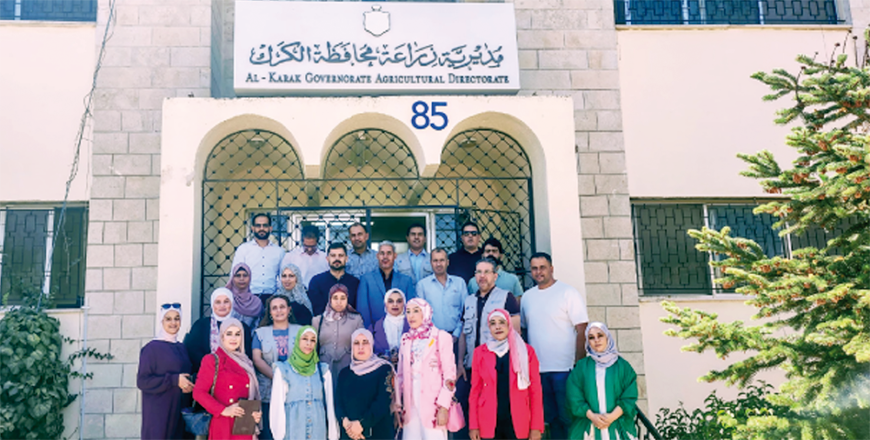You are here
Climate-smart agriculture key for productivity, say experts
By Batool Ghaith - Mar 19,2022 - Last updated at Mar 19,2022
AMMAN — Climate-smart agriculture is highly important for better productivity, according to sector experts.
During the fourth meeting of the National Economic Workshop at the Royal Hashemite Court on Saturday, the agriculture sector panel discussion recommended Jordan to adopt climate smart agriculture for better adaptation, productivity and mitigation of carbon emission, citing a study in cooperation with the World Bank regarding smart agriculture.
The panel discussed the sector’s priority enablers and suggested solutions for each challenge the sector faces, such as the lack of products, weak logistics, climate change and high input costs.
The sector experts and representatives recommended establishing weather stations that use artificial intelligence to ensure agriculture is more adapt to keep up with climate change.
Minister of Agriculture Khalid Hneifat emphasised the need for agricultural guidance and tracking, as well as periodic safety inspections, so that any farmer who does not comply with the instructions is held accountable.
According to Hneifat, 75 per cent of farmers need tracking and guidance to improve the quality of their products.
The panel also discussed agricultural land preservation and addressing ownership fragmentation, by referring to the voluntary guidelines for preserving agricultural land prepared by the Food and Agriculture Organisation of the United Nations.
The session also suggested expanding the use of solar and alternative energy sources to establish renewable energy farms.
Related Articles
KARAK — The Food and Agriculture Organisation of the United Nations in Jordan (FAO), in cooperation with the Ministry of Agriculture, launch
AMMAN — Agriculture Minister Khaled Hneifat on Tuesday launched the first phase of the Dutch agricultural support project, in cooperation wi
AMMAN — The suitability profile of the key crops currently grown in Jordan is expected to change, according to the World Bank’s Jordan Clima


















